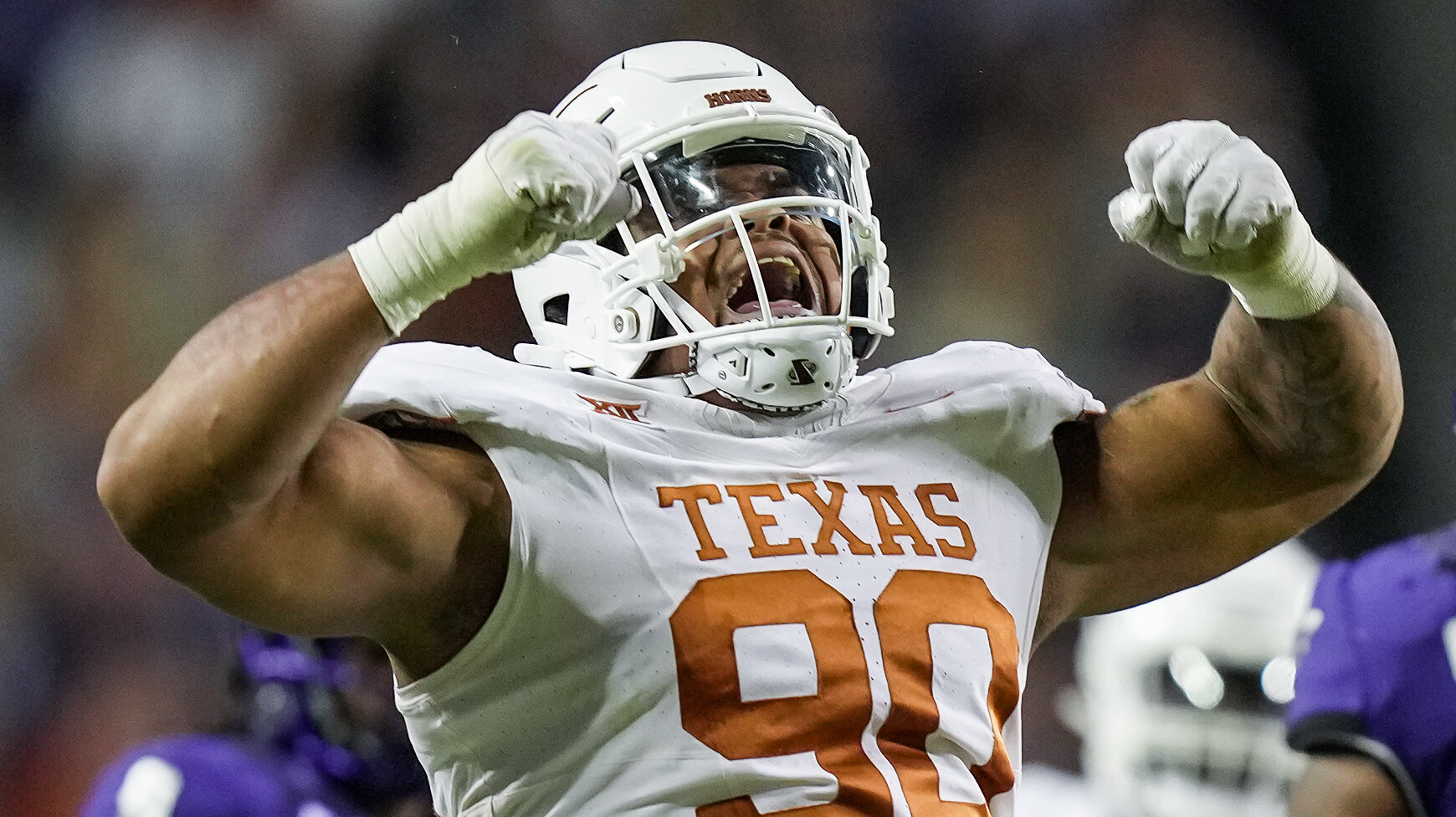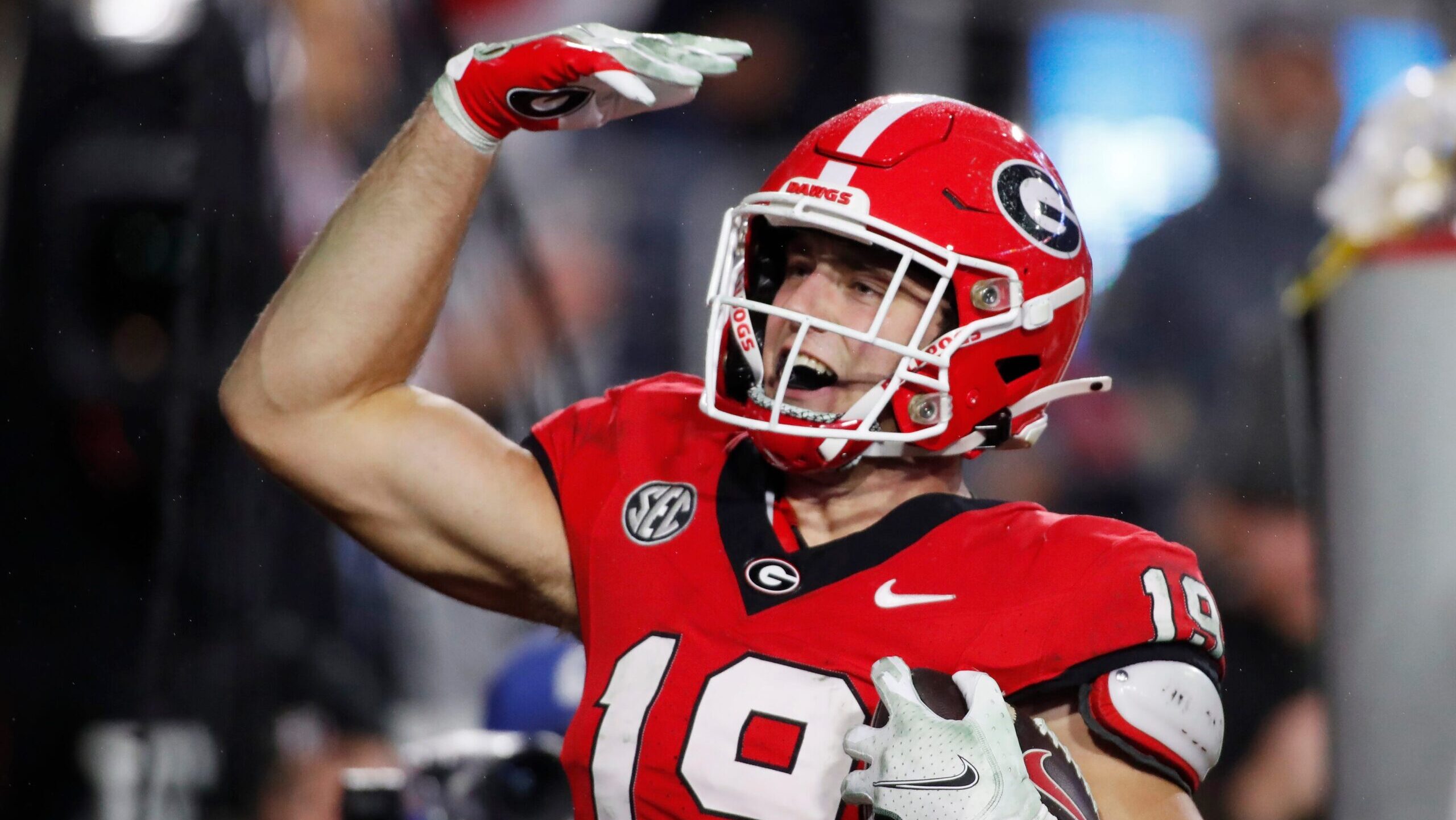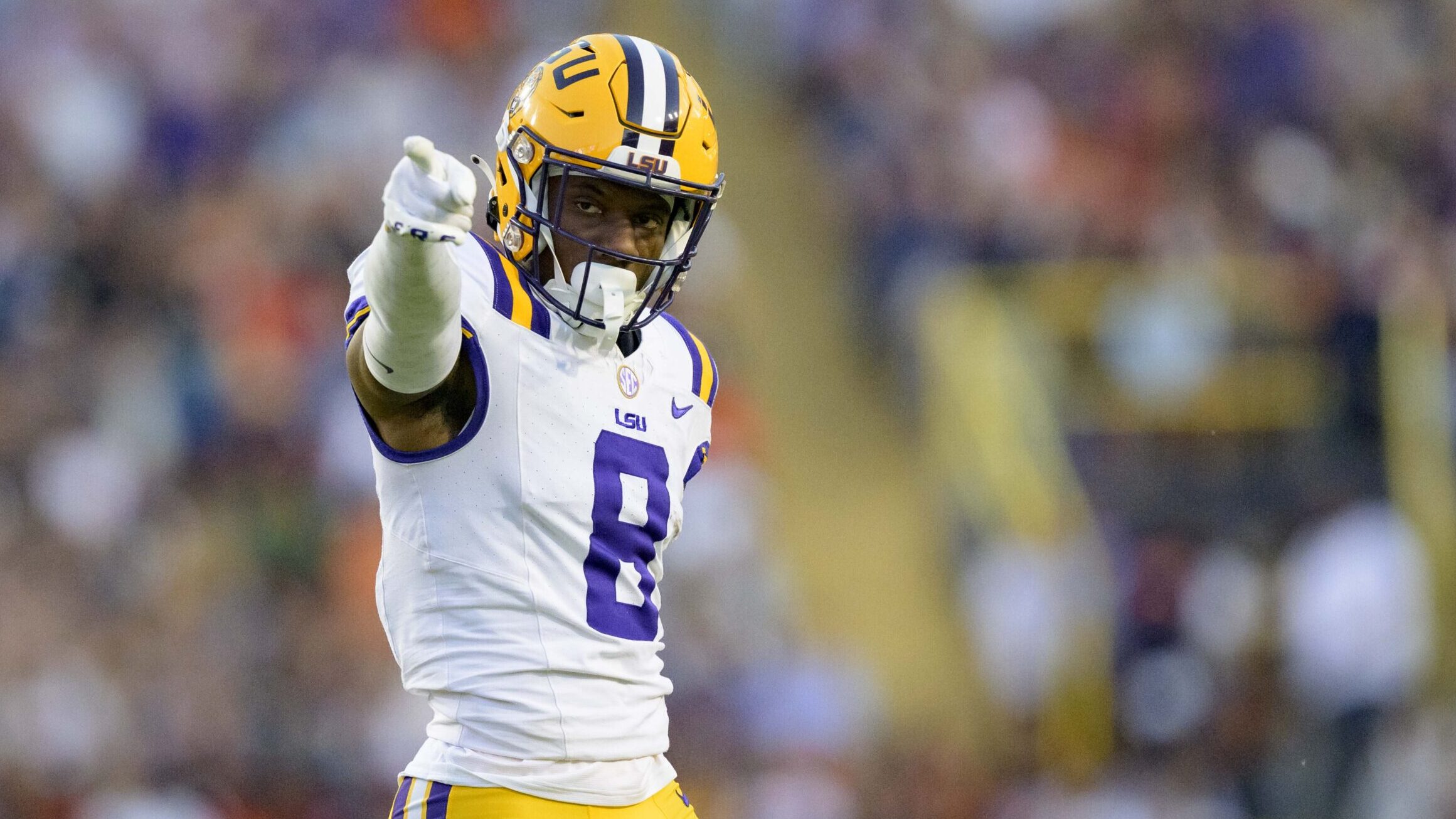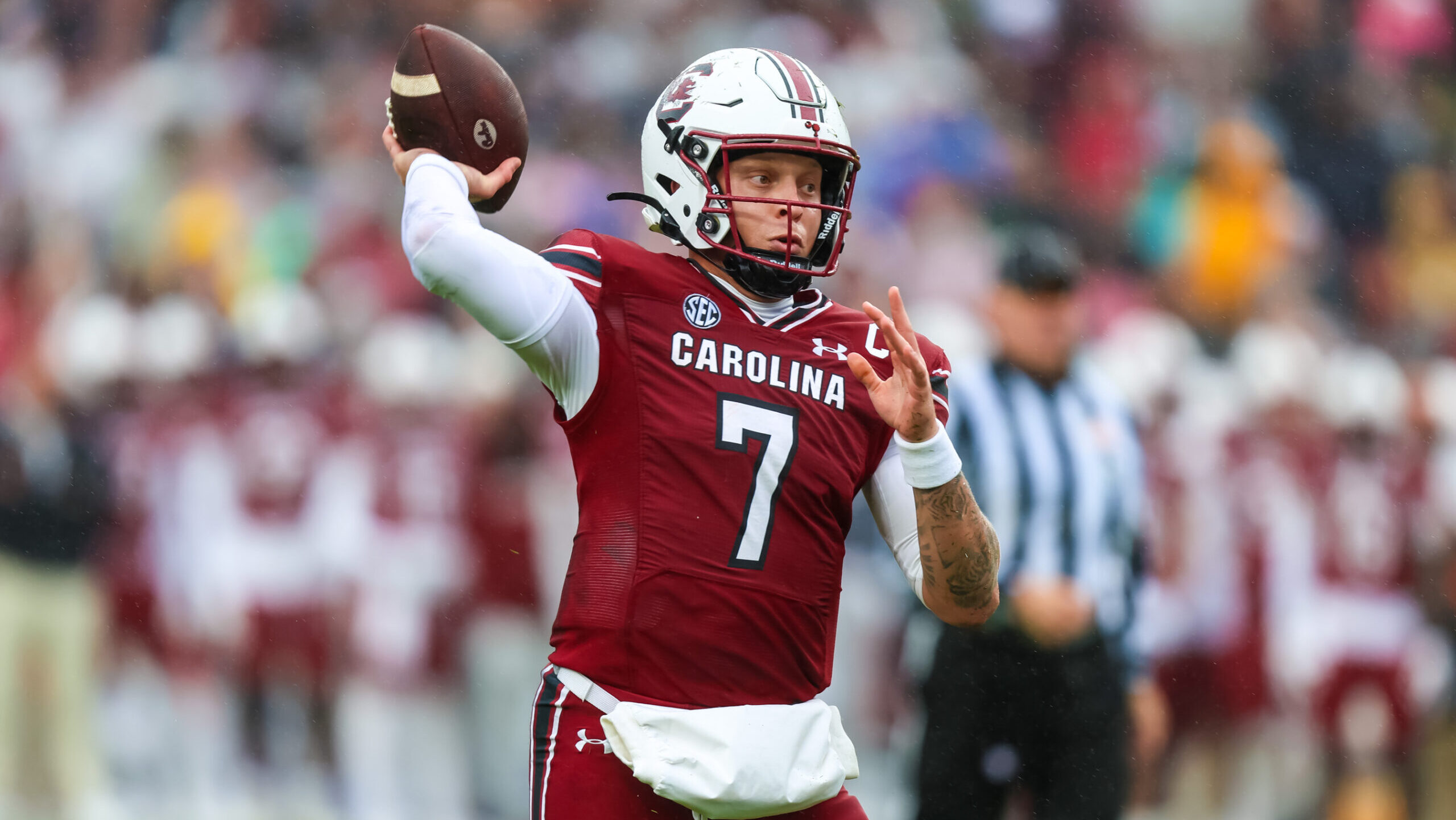Analysis
12/7/22
8 min read
Is Aaron Rodgers Tradeable? Yes, but Contract Handcuffs Packers
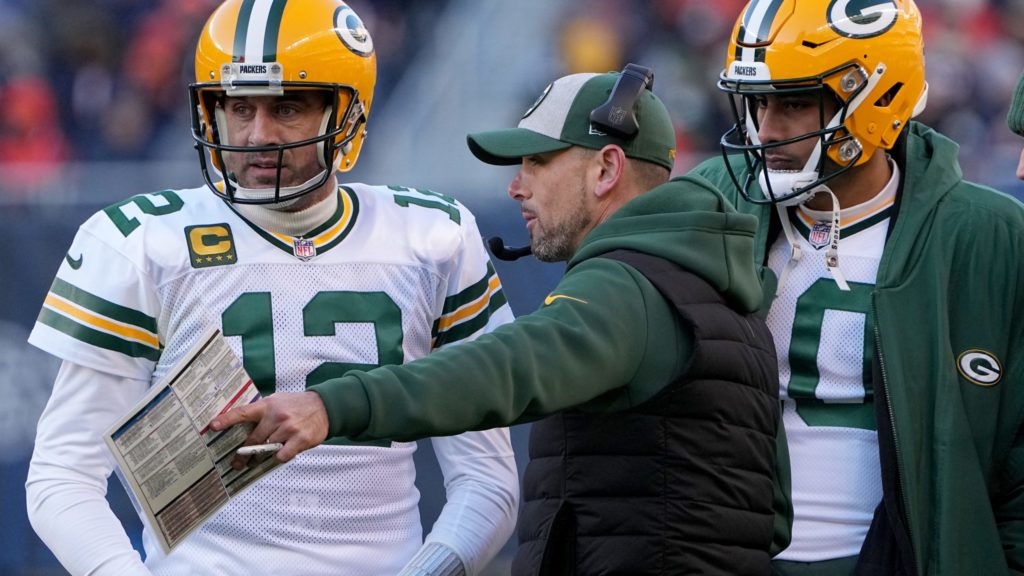
Having a great franchise quarterback is the goal for all NFL teams and is generally a prerequisite for consistent playoff appearances and, ultimately, Super Bowls. That is until such a QB underperforms relative to expectations due to age, injury, lack of a supporting cast or a combination of the above factors after he signed a top-of-market contract. Then it spells a major storm for team executives to navigate.
If the team has already drafted a younger potential replacement, the inclination to move on becomes a more immediate possibility if trade options and salary-cap concerns can be successfully managed.
That’s the current predicament for the Green Bay Packers vis-à-vis their perhaps fading, perhaps still-viable quarterback Aaron Rodgers and his potential replacement Jordan Love.
Has Packers' View on Love Changed?
It was all seemingly aligned for Packers general manager Brian Gutekunst and coach Matt LaFleur when Rodgers won back-to-back league MVP honors while leading the team to 13-win seasons the last two years. It was logical to appease the mercurial future Hall of Famer by signing him to a three-year, $150 million extension in March. They did it even though the Packers had fallen short of getting to the Super Bowl, due to a pair of frustrating home playoff losses to the Buccaneers (2020) and 49ers (2021). They were defeats in which Rodgers could not overcome great defenses, his team’s issues on special teams and his own poor decision-making (not running for a late TD against the Bucs proved costly).
Part of the extension logic appears to have been uncertainty about Love's ability to take the reins after two years without showing great promise. That organizational view has changed this year with Love’s improvement in practices, according to LaFleur. Their view had to be solidified with Love's impressive play two weeks ago when he relieved the injured Rodgers in Philadelphia and directed the Packers to 10 points in his two drives with the game still undecided.
Love completed 6-of-9 passes for 113 yards and a touchdown against the league’s No. 1 pass defense (No. 2 overall). The Eagles won the game 40-33, but Love may have won over Titletown. Many among the organization’s hierarchy and in the fan base have surely tired from the narcissistic Rodgers’ past criticism of management, coaching strategy and his young receivers, along with his absences from offseason programs, and his declining performance this season.
He has battled injuries and dealt with several new receivers (and no Davante Adams) on his way to 22 touchdown passes, nine interceptions and a 64% completion percentage, down from last year’s 37-4-69%, when he was the NFL’s top-rated passer.
Worst of all, his team has plummeted from 13 wins in 2021 to 5-8 this season as it hits its bye week. The NFC North’s three-time defending champs are eliminated in the division and are barely hanging on the playoff fringe.
Rodgers' Unmanageable 2023 Cap Hit
Green Bay’s win against the Bears on Sunday with Rodgers playing through rib and thumb issues delayed the looming decision of whether to start Love once they are officially eliminated from a wild-card spot (their playoff odds currently sit at 4%). That could come on Christmas Day when after an expected win over the lowly Rams, the Packers face the Dolphins in Miami. At that point, it makes sense to start Love in the final two games against the Vikings and Lions, which even Rodgers has suggested as an appropriate decision.
Predictably, Rodgers already is talking about next year. He said after the Bears game he’ll be back in Packerland “if there is a mutual desire on both sides.” LaFleur said he “absolutely” wants Rodgers back, while Gutekunst added: “We made a big commitment to him this offseason so that was obviously something that was really important to us.”
Rodgers' numbers are complicated and daunting from a salary-cap standpoint but there is a way out for the Packers, just not until 2024.
Looking at the Packers’ future course from a salary-cap and on-field perspective, Rodgers is still a top-10 quarterback when healthy, and it makes the most sense for him to heal up and play one more year in Green Bay. But if I were the Packers, I’d want a clear commitment he will participate in a majority of the offseason program as opposed to his past extended absences. This will enable him to work with talented young receivers such as rookie Christian Watson, who has come on with a historic eight touchdowns during the last four games.
Rodgers' numbers are complicated and daunting from a salary-cap standpoint but there is a way out for the Packers, just not until 2024. The cap hit in 2023 would be extremely difficult to manage.
Rodgers is due to receive a guaranteed $58.3 million option bonus on a date of the Packers’ choosing next year. The Packers won't release Rodgers in 2023 as they would still owe him the huge option bonus and, reportedly, would have a $99.8 million dead-money hit (that could be spread over two years with a post-June 1 release).
No way that works for a team projected to be tight against next year’s cap when they would like to re-sign key free agents such as receiver Allen Lazard, tight end Robert Tonyan and Pro Bowl guard Elgton Jenkins. They also will likely need to restructure contracts for highly paid players such as Jaire Alexander and David Bakhtiari (or release him since he’s often unavailable due to injury).
Rodgers is not going to retire and give up his big option bonus. The trade option in 2023 is not attractive unless another team makes a Russell Wilson-type offer (multiple high draft picks and players, which is unlikely since Rodgers is five years older than Wilson). Then, Gutekunst would have to consider it but also commit to cutting several high-salaried players and enter a rebuild to make it work cap-wise.
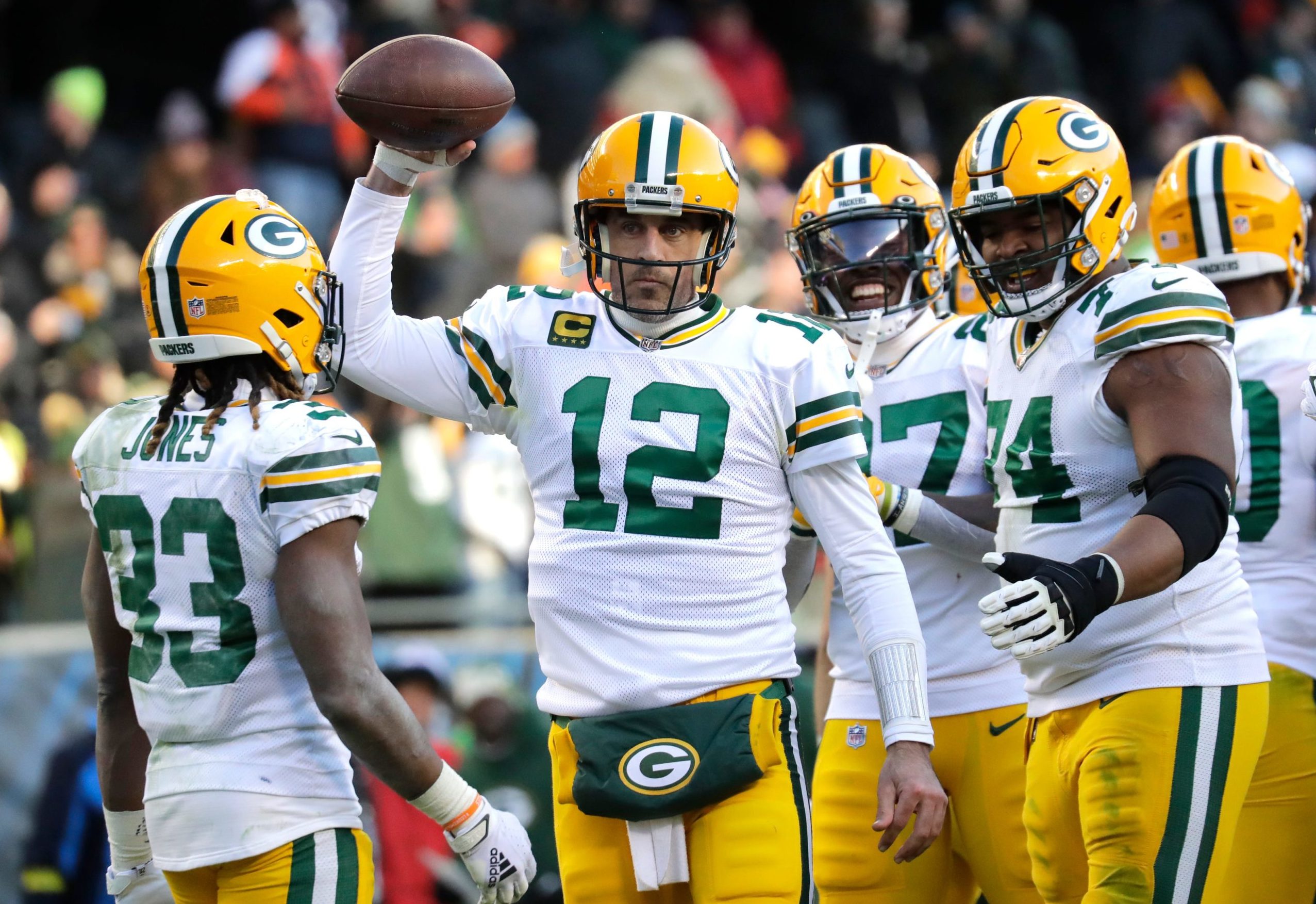
Best Time to Trade Rodgers
The Packers would want to trade Rodgers before paying him the huge option bonus, so his new team is on the hook for that $58.3 million. If the Packers trade Rodgers before next June 1 (and did not pay the option bonus), they would still have a $40.3 million cap charge in 2023. If they trade him post-June 1, 2023 (again, with the new team responsible for the option bonus), the cap hit is reportedly $15.8 million in 2023 and $24.4 million in 2024.
A post-June 1 trade is not realistic because the Packers would not have the benefit of draft-choice compensation next year, and it would limit the teams in the mix. Few teams would want to wait until June 1 to execute the trade, hold the cap room to pay Rodgers and take on the option bonus while relinquishing future draft picks and/or current players.
Love is scheduled for an affordable $3.9 million cap hit next year. The Packers will likely exercise the fifth-year option on Love’s rookie contract by May, which will jump his 2024 salary to an estimated $20 million. So the Packers can afford to keep both players next season with Rodgers at his $31.6 million cap charge (and I wouldn’t extend/restructure his deal to make the cap pain even greater down the road).
If I’m Gutekunst, I would try to trade Rodgers before the 2024 draft, which won’t be easy as even without a no-trade clause in his current contract, Rodgers will want to approve his future destination or he’ll threaten retirement.
If I’m Gutekunst, I would try to trade Rodgers before the 2024 draft, which won’t be easy as even without a no-trade clause in his current contract, Rodgers will want to approve his future destination or he’ll threaten retirement. With a 2024 trade, Green Bay would absorb a $24.48 million salary cap hit on Rodgers that year when the cap will have risen significantly with increased TV money. Gutekunst also could lower Love’s $20 million hit via a short extension if the cap space was needed.
It clearly would be prohibitive to have both QBs in 2024 at their salary levels, which Gutekunst has acknowledged publicly. At that point, somebody’s got to go. If I’m running the Packers, I’ve already invested a 2020 first-round pick in Love and would not trade him with the risk he becomes a top QB elsewhere. Even going on 41, Rodgers should have reasonable trade value if he’s healthy and coming off a good season, despite the Wilson fear factor based on his poor performance in Denver (after all, Tampa Bay won a Super Bowl with Tom Brady in his 40s).
In my GM and team president years in Minnesota and Tennessee, I had to deal with lots of tough quarterback decisions amid tight salary caps, but never a problematic situation to the extent Green Bay will face during the next few years.
How this Rodgers situation is handled by Gutekunst in the front office and by LaFleur on the field will go a long way toward determining the next five or so years for this storied franchise and the future as Packers GM and coach for Gutekunst and LaFleur.
Jeff Diamond is a former general manager of the Minnesota Vikings and team president of the Tennessee Titans. He was selected NFL Executive of the Year after the Vikings’ 15-1 season in 1998. You can follow Jeff on Twitter @jeffdiamondnfl.


